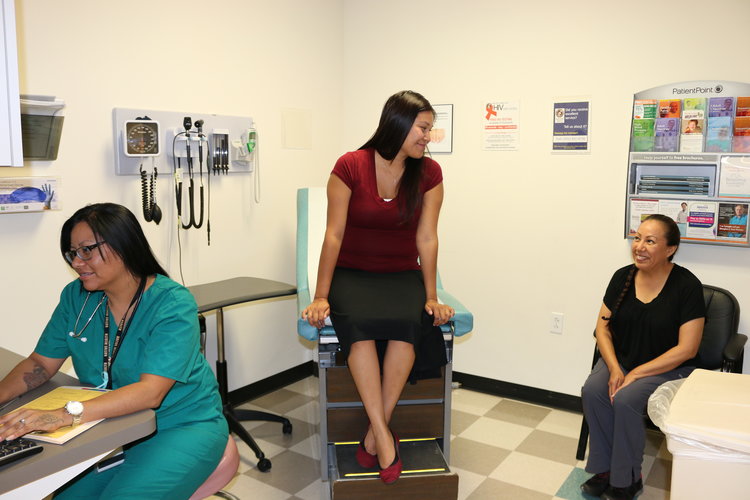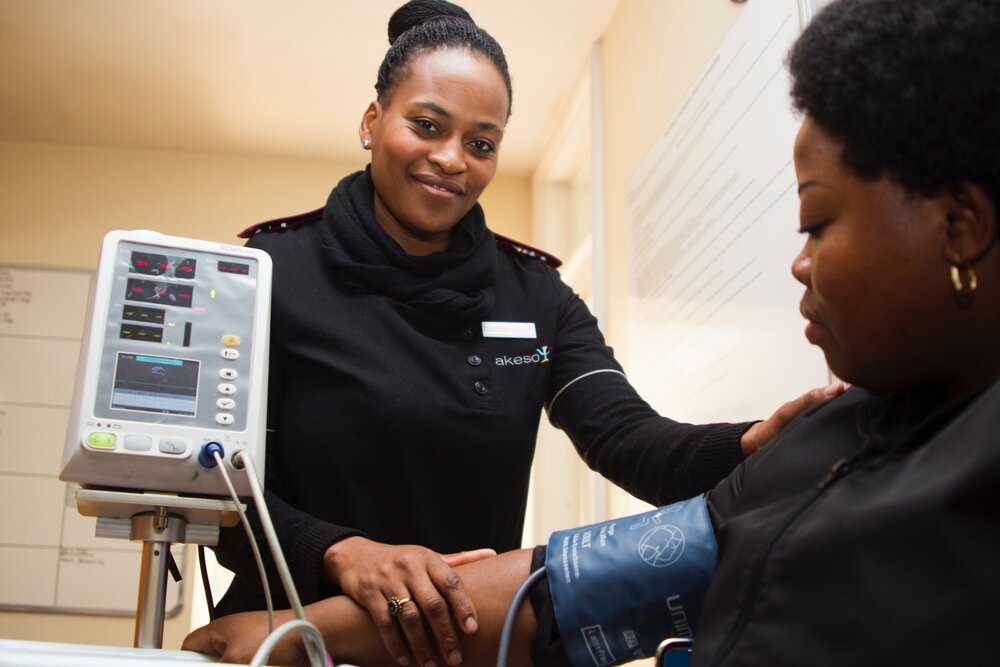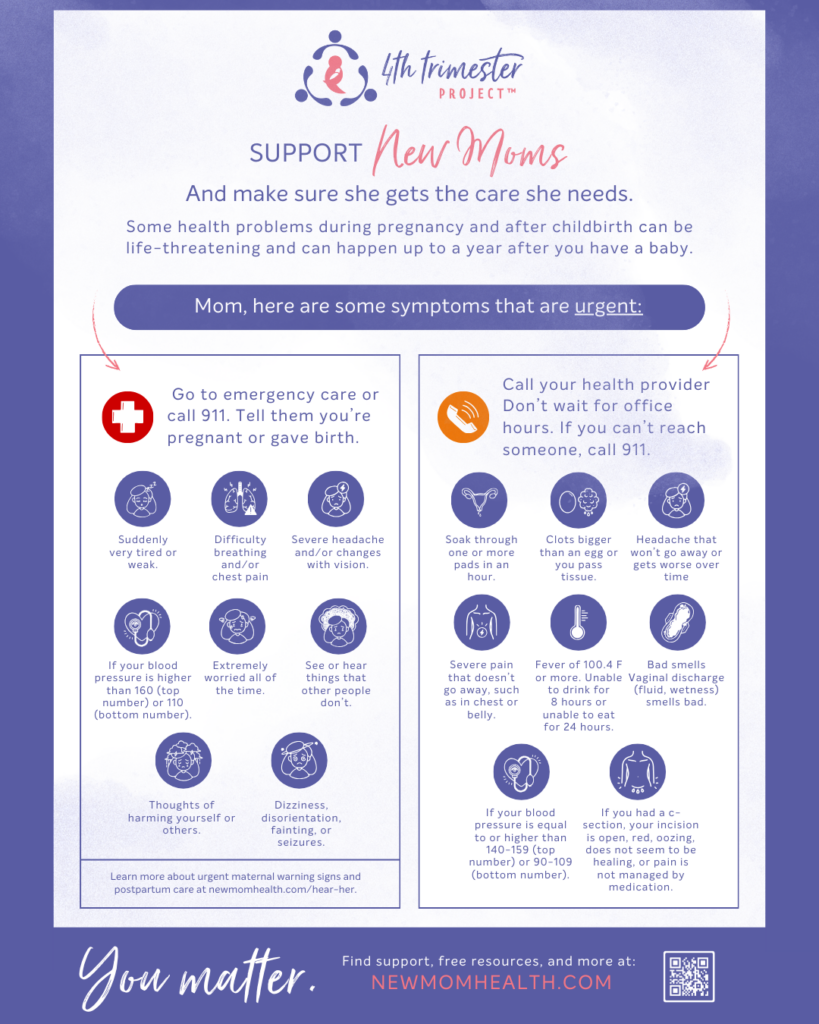
When women are pregnant, they generally see an OB/GYN, a midwife, or a family medicine provider for their health care. Usually, these providers are responsible for your postpartum care. Some women also receive group prenatal care with (hopefully) a reunion about 6 weeks after everyone has given birth.
After your postpartum visit, it may not be clear who your primary health care provider should be. If you are seen by a family medicine doctor or team then you will likely stay with them. These health care teams can also care for your baby and the rest of your family. Some OB/GYNs and midwives will continue to see women for things like the flu and other health concerns and others will not. This is confusing! It can be helpful to create a postpartum health care team during pregnancy. That way, you know who is out there to help, who does what, and how you can reach them.
If your preferred health care provider isn’t able to care for you during the postpartum period, ask if they can give you a list of other health care providers who are in your insurance network. No insurance? Ask your prenatal care provider or pregnancy care manager to offer some recommendations. Federally Qualified Health Centers and health departments can provide support. While it can take time and be an effort to arrange your health care team, it is important to make sure you have the attention and resources you deserve.
Overall Health Care
Medical Assistants (MA) are medical professionals who are responsible for working alongside physicians in medical offices and clinics. MA’s receive formal training from medical assisting programs and obtain a certification. MA’s are trained to perform both clinical and administrative tasks. From measuring your blood pressure to listening to health concerns of patients, CNA’s work with your medical team to provide your care.
Certified Nursing Assistants (CNA) are health care professionals who have completed a state-approved education program. CNA’s may work in a doctor’s office, home care, birthing center or hospital. They work under a licensed nurse’s supervision. From measuring your blood pressure to listening to health concerns of patients, CNA’s work with your medical team to provide your care.
Registered Nurses (RN) are health care professionals that have completed an approved nursing program and obtained a license to practice. An obstetric (ob) nurse is a registered nurse who helps care for female patients during pregnancy, labor and delivery, and in the postpartum period. OB nurses may work in doctor’s offices, hospitals, birthing centers, community clinics, home health companies and a wide variety of other locations. Nurses perform physical exams, provide health promotion, counseling and education, administer medications and coordinate care in collaboration with your health care team.
Mental Health Care
There are a number of different types of health professionals who can support you and your emotional well-being. Seeing a counselor or otherwise taking advantage of resources that are offered postpartum is a sign of strength. Most mental health providers are covered by insurance and if this isn’t the case for you, therapists usually offer their services on a sliding scale based on your income. Don’t be afraid to ask. The following list provides an overview of some of the types of mental health professionals.
A Licensed Clinical Social Worker (LCSW) is a social worker who has a master’s degree, passed an examination, and completed hundreds of hours of supervision. LCSWs use evidence-based methods along with their interpersonal skills (human connection) to help many new mothers. They are also trained in case management and advocacy services. LCSWs can not write prescriptions for medications but many collaborate with physicians who do. Other licenses in this category include: Licensed Independent Social Workers (LICSW) and Academy of Certified Social Workers (ACSW)
Psychologists have a doctoral degree in clinical psychology or another specialty such as counseling or education. They are trained to evaluate a person’s mental health using clinical interviews, evaluation and testing. They can make diagnoses about mood disorders and provide individual and group therapy. They are licensed by a state board.
A psychiatrist is a physician who specialized in treating mental, behavioral, and emotional well-being. They can prescribe medication and have specialized expertise in treating people, such as mothers with perinatal mood or anxiety disorders.
Counselors, Clinicians, Therapists are masters-level health care professionals trained to evaluate a person’s mental health and use therapeutic techniques based on specific training programs. They operate under a variety of job titles based on the treatment setting. Some of the degrees they may have include: Licensed Professional Counselor (LPC), Licensed Marriage and Family Therapist (LMFT) or Licensed Clinical Alcohol & Drug Abuse Counselor (LCADAC).
Psychiatric or Mental Health Nurse Practitioners can provide assessment, diagnosis and therapy for many different mental health needs. In some states, they are also able to prescribe medication to patients. They have different types of licensures but all require a Master’s degree in nursing with a special focus on psychiatry.
Primary Care Physicians and Family Nurse Practitioners can provide general medical services and prescribe medication. Some are more experienced than others in treating women with conditions such as postpartum depression.
Pastoral Counselors are clergy members with training in clinical pastoral education. They are trained to diagnose and provide counseling. They may be members of the Association of Pastoral Counselors and can have equivalents to a doctorate in counseling.
Specialty Care
Physical therapists and occupational therapists can help women recover from pregnancy and childbirth. Not all health care team members may be familiar with physical therapy, such as pelvic floor physical therapy. Some hospitals and medical providers keep them on staff. Physical (PT) and occupational therapists (OT), especially those specializing in women’s health, can help address urinary and fecal (poop) incontinence. They can help with scar tissue and reduce pelvic pain. Scarring and tears from c-section or vaginal birth can contribute to low sex drive and pain during exercise. PTs and OTs can also help with low back pain and also help women with fitness, prevention and wellness. Note that some health plans code PT and OT differently so you may be able to get double the care by finding both! Contact your health plan to learn about your benefits.
American Urogynecologic Society – Voices for PFD – Find a Provider
Urogynecologists complete medical school and a residency in Obstetrics and Gynecology or Urology. These doctors are specialists with additional training and experience in the evaluation and treatment of conditions that affect women’s pelvic organs, and the muscles and connective tissue that support the organs. Many, though not all, complete formal fellowships (additional training after residency) that focus on the surgical and non-surgical treatment of gynecologic problems. Some of the common problems treated by a urogynecologist include urinary incontinence or leakage, pelvic organ prolapse (dropping of the vagina, uterus), and overactive bladder (the need to pee all the time).
Endocrinologists are doctors who specialize in glands and the hormones they make. They deal with metabolism, or all the biochemical processes that make your body work, including how your body changes food into energy and how it grows. These providers can help diagnose and treat conditions that affect your adrenals, cholesterol, hypothalamus, pancreas, reproductive glands and thyroid.
Cardiologists are doctors who specialize in diagnosing and treating diseases or conditions of the heart and blood vessels—the cardiovascular system. If you had high blood pressure before, during or after pregnancy or were told that you have heart problems, it is important to get follow up care from a specialist.
Lactation and Infant Feeding
There are many different types of health care professionals who can help with lactation and infant feeding, whether you are feeding your baby your milk, donor human milk, or formula. In many cases, questions for these aspects of your health can be answered by all members of your health care team. However, most health care team members receive little training in lactation and breastfeeding. In these cases and when complications arise, specialized services are available. Insurance should cover some of these health care services although the type covered may vary. In some cases, the baby’s insurance may cover this care. It may be helpful to explore coverage in advance, such as during pregnancy.
Breastfeeding medicine specialists are physicians who have additional training in lactation. They may be fellows of the Academy of Breastfeeding Medicine. International Board Certified Lactation Consultants (IBCLCs) are considered the gold standard of lactation professionals. They have a college education, pass clinical training, and a board exam and must complete continuing education and recertification.
WIC Breastfeeding Peer Counselors provide breastfeeding information and support. They need to have breastfed for at least 6 months and have participated in the WIC program. They receive 20 hours of training and ongoing education.
Doulas are professionals at emotional support around pregnancy and postpartum. Currently, some people have access to doula services through their health insurance, or as part of their birthing facilities’ health care team, and for other people, doulas are available to hire for a fee. Doulas usually offer options, which may include providing health information and planning, arranging to be with you for labor and/or after childbirth, and helping your whole family during clinical visits and at home. There are different types of Doulas that can also specialize in NICU, Loss, Fatherhood, and more. Here are some tips to find a doula in your area.
There are also certified lactation counselors, breastfeeding peer counselors, peer supports such as through La Leche League leaders, and other various groups of people who have received training and have lived experience.
This is not an exhaustive list of ALL specialists and possible care team members. Depending on your situation and needs, you may have other types of providers you’ll be referred.








